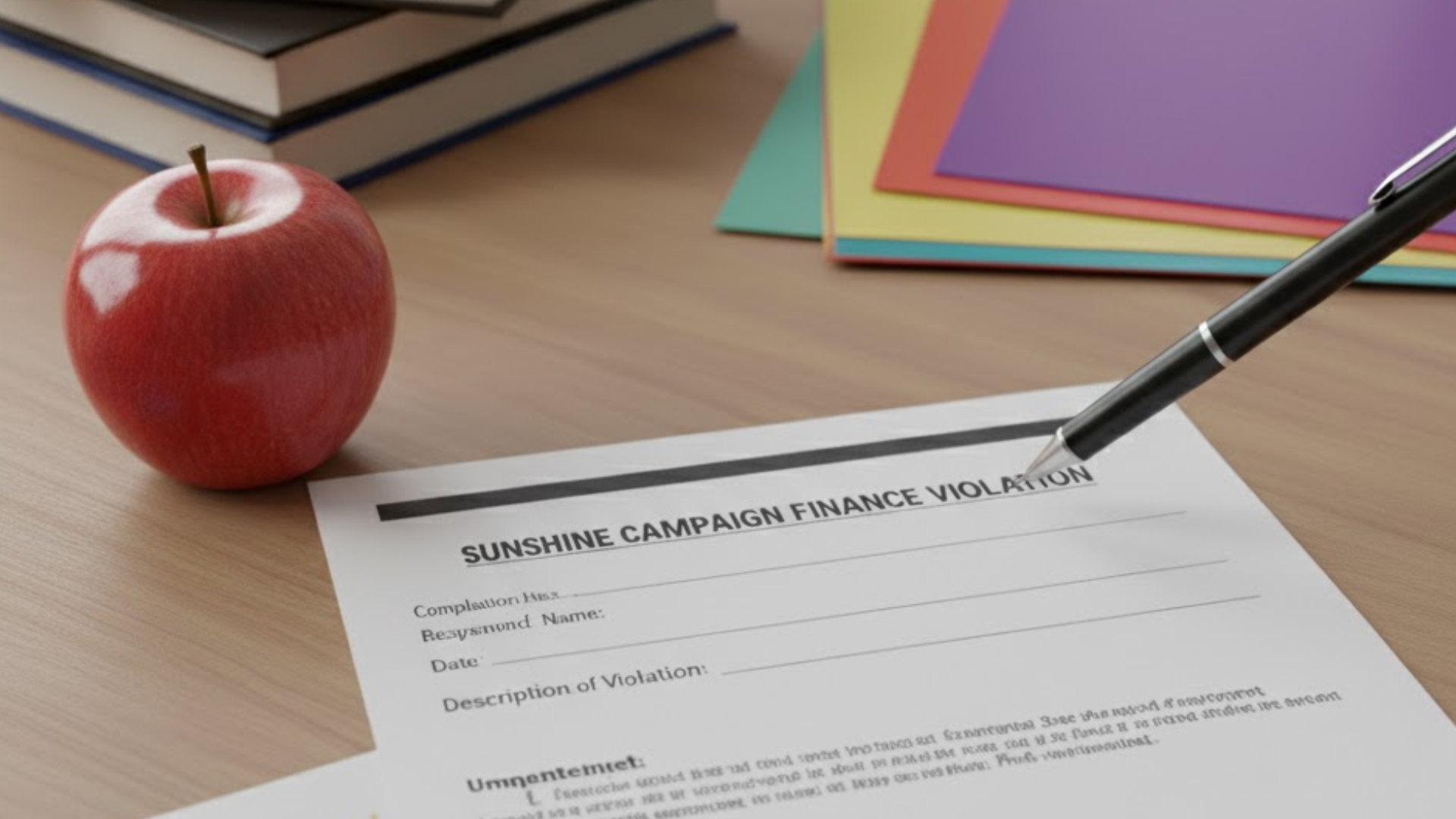



Nothing says small-town charm quite like political retaliation. On one side, we have the Valley School District #262 trying to pass a $600,000 levy in the May 2025 election. On the other is a local farmer who dared to oppose it. When the levy failed by a mere seven votes, things escalated quickly.
Cue a whirlwind of seemingly retaliatory election violation accusations, followed by the type of behavior you’d expect from a schoolyard bully, and you have what appears to be political targeting. Who knew that in 2025, school elections would turn into a game of legal dodgeball, where those who oppose something on the ballot find themselves in legal crosshairs? After all, what’s a little voter intimidation amongst neighbors, right?
What Happened:
For years, levies for the Valley School District would appear on the ballot and pass with remarkably low voter turnout. In 2023, Jerome County voters approved a supplemental levy for the Valley School District for $600,000 ($300,000 per year for two years) by 58 votes.
In the months leading up to the May 2025 consolidated election, Jerome County voters were informed that a renewal supplemental levy would be on their ballot. In early May 2025, the Valley School District sent a flyer to voters encouraging them to approve the levy on May 20. The only problem is, the information detailed on the flyer regarding how the funds were to be spent did not appear to match the stated purpose for the money on the ballot. Idaho Code Title 33, Chapter 8 specifies transparency requirements in elections for supplemental levies.
This resulted in local farmer and father of former Valley School District students, Dean Dimond, filing a complaint with the Secretary of State, which went unanswered in the days leading up to the election. More locals questioned the need for another levy renewal, not just Dimond, and a few banded together to send out their own flyer, encouraging residents to vote “No” on renewing the supplemental levy after 14 years.
In the meantime, Dimond created four homemade cardboard signs in his barn stating “Vote No” on the upcoming levy, concerned about how the money was being spent and the lack of transparency. Additionally, he phoned 15 or 20 local neighbors and friends and encouraged them to ask the school district questions about how the levy money was being spent.
Dimond made a public records request (PRR) to learn how the $600,000 was spent from the 2023 levy. His findings — which were provided after the election — were less than clear. According to information he gathered from confusing budget documents, he indicated the money from the last supplemental levy was not used for its stated purpose on the 2023 ballot. It is the understanding of Dimond and another local official related to the school that the money seems to have been used as a sort of slush fund for the school district.
Here’s where things get really interesting.
Dimond requested to be put on the agenda for the June 16th Jerome County Board meeting to discuss what appeared to be an election violation and the possible misuse of taxpayer funds. At the meeting, Dimond was presented with an official envelope containing a complaint of alleged Sunshine Campaign Finance violations, signed by the Jerome County Clerk.
The complaint of the alleged Sunshine violation was filed by none other than the superintendent of the school — who does not appear to even reside in Valley School District — Ty Jones. Jones alleged that Dimond had violated Idaho’s Sunshine laws by distributing an unmarked anti-levy mailer and failing to report campaign expenditures. The complaint, dated May 28, 2025, was filed using the school district’s official phone number, despite Jones later claiming he submitted it as a private citizen.
After reaching out to the Secretary of State to inquire whether there was an open investigation against Dimond, the Campaign Finance Coordinator at the Secretary of State’s office said that there was no open investigation into the alleged Sunshine law violation because it was under the jurisdiction of the Jerome County Clerk.
As of late June, after no evidence was brought forward condemning Dimond of the alleged Sunshine law violations, the Jerome County Clerk informed him he was no longer under investigation, and the pending $200 fine or jail penalty was dropped.
Dimond, however, was not the only local resident to be targeted for opposing the levy. According to reports, a vending machine business owner also faced consequences after allowing a friend to place a “Vote No” sign in his yard before the May election. Following an August school board meeting, his three machines were removed from the school, effectively terminating his business there. Reports suggest this action was taken because he did not “support the school” by not supporting the levy.
Bigger than a School Levy and Sunshine Violation Accusation:
You might be thinking, “People file reports against political opponents for allegedly violating Sunshine laws frequently as a political tactic.” While that is unfortunately true, this isn’t two private citizens in a political dispute — it’s a local government entity seemingly targeting a citizen for opposing a policy during an election.
What makes this situation even more troubling is the atmosphere of intimidation and fear now surrounding civic participation in the Valley School District. Several residents have said they’re hesitant to put out yard signs, speak at meetings, or even publicly question the levy — because they fear retaliation from the school. When a citizen can be targeted with legal threats, public accusations, and loss of work simply for asking questions about how taxpayer funds are spent and opposing a levy, others take notice, and they often go silent.
The fear isn’t abstract either. It’s deeply tied to the way elections are conducted in the district. Levy votes are held inside the very school buildings that stand to benefit financially from their passage, under the watchful eye of security cameras. In a small, close-knit community where everyone knows everyone, and where many residents have children enrolled in that same school, the pressure is palpable.
People have expressed concerns that casting a “No” vote could have social or business consequences, or worse, that their children could face subtle forms of retaliation or exclusion at school. When the vote is held in the very institution campaigning for the levy, it blurs the line between civic process and institutional pressure.
Unfortunately, parents’ fears appear to be valid, as reports have surfaced since the levy failed that school staff have told students there would be no senior trips or special events for the next few years, all because their parents "voted no" on the levy. This puts students in the middle of a political dispute and uses them to apply guilt and social pressure on their parents at home.
When children are told they’ll miss out on milestone experiences because of how their parents voted, the implication is clear: dissent has a cost, and everyone in your household will pay it.
Questions that Demand Answers:
The Idaho Freedom Foundation is troubled by the Valley School District's actions against levy opponents, and we have some questions that we’d like answered.
This isn’t just a small-town squabble — it’s a test of the integrity of local governance. The problem is not the complaint itself; it is the optics regarding the timing and nature of the complaint by a local government entity as well as a businessman losing work because of his political preferences. It’s about whether a government institution — especially one charged with educating children — can use its authority to coerce behavior during an election. It’s about whether public officials can turn children into bargaining chips in a political campaign. And it’s about whether parents can vote their conscience without fearing that their kids will suffer the consequences.
The Valley School District and Superintendent Ty Jones’s actions raise troubling questions about the power imbalance between government institutions and the citizens they serve. Across the United States and Idaho, similar stories are emerging: local governments using their power to punish opposition, blur legal lines, and protect their own interests at the expense of transparency and civic engagement.


